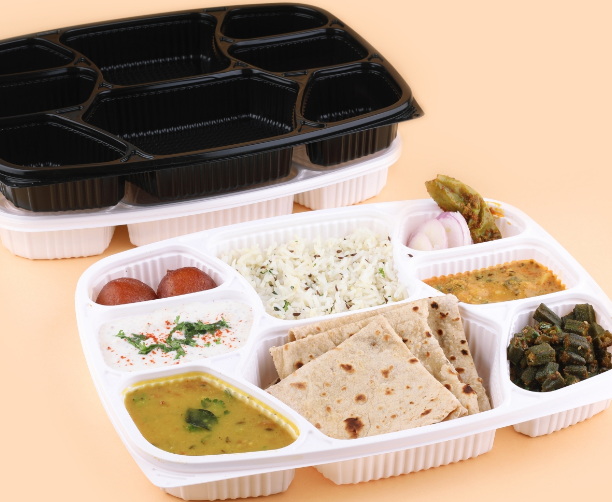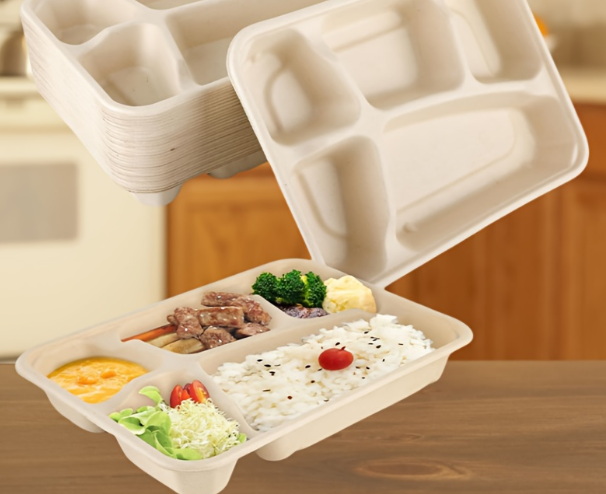
Content Menu
● Introduction to Eco-Friendly Disposable Tableware
>> Types of Eco-Friendly Materials
● Benefits of Eco-Friendly Disposable Tableware
>> Environmental Impact
>> Cost and Accessibility
>> Durability and Style
● Top Manufacturers of Eco-Friendly Disposable Tableware
● How to Choose Eco-Friendly Disposable Tableware for Parties
● Disposable Tableware for Parties MFG: Trends and Innovations
>> Future of Biodegradable Tableware
>> Impact of Government Policies
● Expanding the Use of Eco-Friendly Tableware Beyond Parties
>> Educational Initiatives
● Marketing Strategies for Eco-Friendly Disposable Tableware
>> Social Media Campaigns
● Conclusion
● FAQ
>> 1. What materials are commonly used for eco-friendly disposable tableware?
>> 2. How long does it take for biodegradable tableware to decompose?
>> 3. Is eco-friendly disposable tableware more expensive than traditional plastic?
>> 4. Can biodegradable tableware be reused?
>> 5. How can I ensure I am buying genuine eco-friendly disposable tableware?
● Citations:
In recent years, the demand for eco-friendly disposable tableware has surged, especially for parties and events. This shift towards sustainability is driven by growing concerns about plastic waste and its impact on the environment. Eco-friendly disposable tableware manufacturers are stepping up to meet this demand by producing innovative, biodegradable products that not only reduce waste but also offer stylish and functional solutions for party hosts.

Introduction to Eco-Friendly Disposable Tableware
Eco-friendly disposable tableware is made from natural materials such as sugarcane bagasse, bamboo, palm leaves, and wheat straw. These materials are biodegradable, meaning they can decompose naturally without leaving harmful residues behind. This contrasts sharply with traditional plastic tableware, which takes hundreds of years to decompose and contributes significantly to pollution.
Types of Eco-Friendly Materials
1. Sugarcane Bagasse: A byproduct of sugarcane processing, bagasse is durable and heat-resistant, making it ideal for plates and bowls.
2. Bamboo: Known for its strength and flexibility, bamboo is used for utensils and plates.
3. Palm Leaves: Dried palm leaves are pressed into shapes for plates and bowls, offering a natural and unique aesthetic.
4. Wheat Straw: A lightweight material used for plates and containers.
Benefits of Eco-Friendly Disposable Tableware
Environmental Impact
Eco-friendly disposable tableware significantly reduces plastic waste. Unlike plastic, which can take centuries to decompose, biodegradable tableware breaks down in a few months, leaving no toxic residues behind. This not only helps reduce landfill waste but also supports a circular economy by providing nutrient-rich compost for soil.
Cost and Accessibility
While eco-friendly options might be slightly more expensive than traditional plastic, they offer long-term benefits by reducing environmental cleanup costs and providing an eco-conscious branding opportunity for businesses. Moreover, advancements in manufacturing are driving prices down, making these products more accessible.
Durability and Style
Modern eco-friendly tableware is designed to be durable and stylish, capable of handling both hot and cold foods without compromising on aesthetics. This makes them perfect for parties and events where presentation matters.
Top Manufacturers of Eco-Friendly Disposable Tableware
Several companies are leading the way in producing eco-friendly disposable tableware:
1. Pactiv LLC (USA): Known for their wide range of biodegradable products.
2. Huhtamäki Oyj (Finland): Offers innovative solutions using sustainable materials.
3. Behzist Biodegradable Tableware (Iran): Specializes in biodegradable tableware made from natural materials.
4. Vegware (UK): Provides compostable tableware solutions globally.
5. Biotrem (Poland): Uses wheat bran to produce fully biodegradable tableware.
How to Choose Eco-Friendly Disposable Tableware for Parties
When selecting eco-friendly disposable tableware for parties, consider the following factors:
- Material: Opt for materials like sugarcane bagasse, bamboo, or palm leaves.
- Durability: Ensure the products can handle hot and cold foods without losing shape.
- Style: Choose products that match your party theme and aesthetic.
- Certifications: Look for certifications that ensure the products are biodegradable and compostable.
Disposable Tableware for Parties MFG: Trends and Innovations
The market for eco-friendly disposable tableware is booming, driven by government bans on single-use plastics and increasing consumer awareness. Manufacturers are innovating by using new materials and technologies to improve durability and aesthetics while maintaining sustainability.
Future of Biodegradable Tableware
The future of biodegradable tableware looks promising, with advancements in materials science and manufacturing processes. As demand continues to grow, we can expect more affordable and efficient solutions to emerge. Innovations in biodegradable materials are likely to expand beyond traditional sources, incorporating new plant-based materials and possibly even algae-based products.
Impact of Government Policies
Government policies play a crucial role in promoting the use of eco-friendly disposable tableware. Many countries are implementing bans on single-use plastics, which has led to an increase in demand for sustainable alternatives. This regulatory push is driving innovation and investment in the biodegradable tableware sector.

Expanding the Use of Eco-Friendly Tableware Beyond Parties
While eco-friendly disposable tableware is commonly associated with parties and events, its applications extend far beyond these settings. It can be used in daily life, such as for picnics, outdoor gatherings, or even in schools and offices. By integrating eco-friendly tableware into our daily routines, we can significantly reduce plastic waste and contribute to a more sustainable lifestyle.
Educational Initiatives
Educational institutions can play a vital role in promoting the use of eco-friendly disposable tableware. By incorporating sustainable practices into school events and daily operations, schools can educate students about the importance of environmental conservation and the benefits of biodegradable materials.
Marketing Strategies for Eco-Friendly Disposable Tableware
Companies manufacturing eco-friendly disposable tableware often focus on highlighting the environmental benefits of their products. Marketing strategies include emphasizing the biodegradable nature of the materials, showcasing certifications from reputable organizations, and partnering with eco-conscious brands to enhance credibility.
Social Media Campaigns
Social media platforms are powerful tools for promoting eco-friendly products. Companies can leverage platforms like Instagram and Facebook to share engaging content that showcases the aesthetic appeal and sustainability of their products. Influencer partnerships can also help reach a wider audience and build brand awareness.
Conclusion
Eco-friendly disposable tableware manufacturers are revolutionizing the way we approach parties and events by offering sustainable, stylish, and functional solutions. With a wide range of materials and products available, consumers can now choose to reduce their environmental footprint without compromising on aesthetics or convenience. As the industry continues to innovate and grow, we can expect even more exciting developments in the world of eco-friendly disposable tableware.

FAQ
1. What materials are commonly used for eco-friendly disposable tableware?
Eco-friendly disposable tableware is typically made from materials like sugarcane bagasse, bamboo, palm leaves, and wheat straw. These materials are biodegradable and compostable, reducing environmental impact.
2. How long does it take for biodegradable tableware to decompose?
The decomposition time varies depending on the material and conditions. Generally, biodegradable tableware decomposes within a few months in a composting environment.
3. Is eco-friendly disposable tableware more expensive than traditional plastic?
While eco-friendly options might be slightly more expensive initially, they offer long-term benefits by reducing environmental cleanup costs and providing eco-conscious branding opportunities.
4. Can biodegradable tableware be reused?
Most biodegradable tableware is designed for single use. However, some materials like palm leaf plates can be gently washed and reused a few times for dry foods.
5. How can I ensure I am buying genuine eco-friendly disposable tableware?
Look for certifications from reputable organizations and check the product's material composition to ensure it is biodegradable and compostable.
Citations:
[1] https://www.thooshan.com
[2] https://ecoclicky.com/en/global-biodegradable-tableware-manufacturers/
[3] https://arbhuenterprises.com/eco-friendly-wholesale-tableware-collections/
[4] https://smartyhadaparty.com/collections/eco-plates
[5] https://www.youtube.com/watch?v=COkDUW3wo1k
[6] https://packthismeal.com/blogs/article/a-guide-to-eco-friendly-disposable-tableware
[7] https://www.bioleaderpack.com/biodegradable-tableware-detailed-questions-and-answers/
[8] https://www.green-sapling.com/blogs/news/how-to-choose-eco-friendly-party-tableware
[9] https://dir.indiamart.com/impcat/eco-friendly-disposable-plates.html
[10] https://www.anchenggy.com/blog/top-10-biodegradable-tableware-manufacturers-in-the-world.html
[11] https://greenpaperproducts.com/collections/industries/partyware
[12] https://palmware.in/ultimate-guide-to-eco-friendly-disposable-tableware/
[13] https://www.innaturepack.com/questions-biodegradable-disposable-tableware-molded-pulp/
[14] https://naturalpanaa.com/sustainable-choices-eco-friendly-disposable-party-supplies/
[15] https://www.mviecopack.com/news/what-are-some-common-questions-about-molded-pulp-disposable-eco-friendly-biodegradable-tableware/
[16] https://trade.talkingtables.com/collections/tilly-tigg
[17] https://www.alibaba.com/showroom/disposable-tableware.html
[18] https://chuk.in
[19] https://ecopartysupply.co.uk
[20] https://www.anzhucraft.com/disposable-tableware-for-parties-manufacturers/
[21] https://www.dinearth.com
[22] https://www.ecosoulhome.com/collections/party-supplies
[23] https://www.goodstartpackaging.com/tableware/plates/
[24] https://www.alibaba.com/showroom/biodegradable-tableware.html
[25] https://theoriginalpartybagcompany.co.uk/collections/eco
[26] https://greenpaperproducts.com/collections/compostable-plates
[27] https://www.biologischverpacken.de/en/assortment/compostable-tableware/
[28] https://prettylittlepartyshop.co.uk/collections/eco-friendly-tableware
[29] https://www.verterra.com/products/verterra-party-perfect-package
[30] https://www.youtube.com/watch?v=oUkY2ObAxi8
[31] https://www.freepik.com/free-photos-vectors/sustainable-party-tableware

















